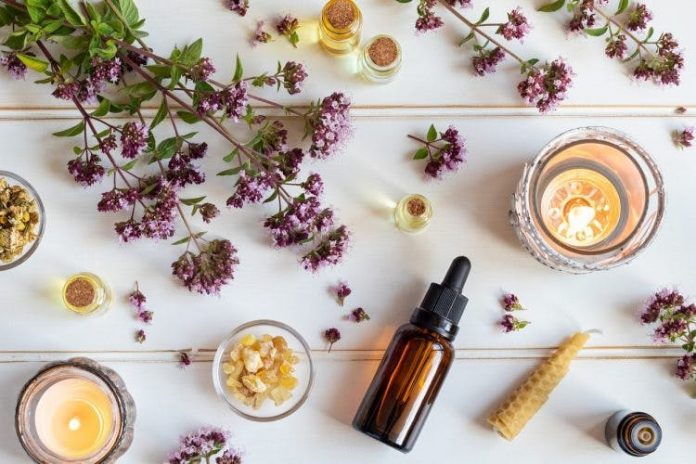What Causes Asthma
There is no clear explanation why some people have asthma and others don’t, but there is ongoing research on this subject. Factors that might put certain people at a higher risk for asthma are:
Genetics: You might be at a higher risk of having asthma if there is a family history of asthma or allergic diseases.
Allergies: You might be at a higher risk of developing asthma if you have allergies to smoke, tobacco, outdoor air pollution, pets, mould, dust mites, etc.
Respiratory infections: Viruses such as Respiratory Syncytial Virus (RSV) can damage the developing lungs of young children leading to asthma.
Environmental factors: Certain allergens (allergy-causing substances), fumes, toxins and smoke might cause asthma in some people as they might irritate the airway. This can significantly harm children in whom the immune system is undeveloped.
Symptoms of Asthma:
Generally, the asthma symptoms are very obvious and resemble the signs and symptoms of other respiratory diseases.
Some of the common symptoms are as follows:
You might experience a cough, especially at night
You might experience a shortness of breath
You might experience wheezing (a musical or whistle-like sound while breathing)
You might experience pressure, tightness or pain in the chest.
Knowing the warning signs and the triggers of an asthma attack can help you avoid or control your asthma. When you follow your doctor’s advice and take medicines exactly as they tell you to, you might be able to have control over your asthma; you can then notice:
Better sleep
Possible reduction of symptoms such as wheezing and coughing.
You can take part in physical activities.
Home Remedies for Asthma:
The home remedies for asthma mentioned below need more research to be incorporated in daily life. As asthma can be a life-threatening disease, it is a serious condition and must be diagnosed and treated by a doctor.
According to the currently available data, the following might be helpful for asthma.
1. Karpoorathy oil
Karpoorathy oil might help with asthma. It might help to relieve the phlegm that gets accumulated in the chest and might help in breathing freely. An ayurvedic physician might suggest the application of the oil to your back and chest. However, more research is required to state the potential effects of karpoorathy oil on asthma. Kindly consult a doctor before using it. Please do not self-medicate.
2. Pranayama
Kayakarpam (a division of Siddha medicine) mentions breathing exercises for people with asthma. These breathing exercises are known as pranayama. These exercises might help strengthen the respiratory system, which might help with asthma. They might also help in lowering stress. Please ensure that you consult with an expert in Siddha to guide you through the pranayama exercises.
3. Mulethi
Mulethi is also known as yashtimadhu or liquorice root. It is scientifically known as Glycyrrhiza galbra and belongs to the family Fabaceae. It might have the potential to help with asthma. A tea made from the root of liquorice might be recommended by your Ayurvedic physician. To make the tea, you should take the root and boil it in water.
Drinking this tea might be helpful for asthma. However, more studies are required to prove the potential effects of mulethi on asthma. Please consult a doctor before using it. Do not self-medicate.
4. Vasa
Vasa is known as vasaka (English), arusa (Hindi), basanga (Oriya) and bhekar (Punjabi). It is known by many different names in regional languages across India. The scientific name is Adhatoda vasica and it belongs to the Acanthaceae family. A decoction made with vasa leaves along with dry ginger, long pepper and honey may be recommended by an Ayurvedic physician. This decoction might have the potential to help with cough associated with bronchial asthma. However, more research is required to ascertain these effects. Therefore, please consult a doctor before using it.
5. Star Anise
It is also known as chakra phool, anasphal, takkolam and badian. It might have the potential to help with asthma. Along with honey, it might help with bronchial cough associated with asthma. Therefore, it might be a herb used by Ayurvedic physicians. However, more research is required to prove its effect on asthma. Kindly consult a doctor before using it and do not self-medicate.
6. Ajwain Patta
It is also known as Karpuravalli in Tamil, Pathurchur in Marathi and by various names such as Indian mint, Cuban oregano, Indian borage and Mexican mint in English. The leaves of this plant might help provide relief from the symptoms of asthma. Boiling a few leaves in water and inhaling the vapour might be helpful for asthma. It might also be helpful as a decoction with ginger, pepper and honey to relieve chest congestion. However, make sure to consult with a doctor before using it.
7. Lavanga (clove)
Clove is commonly used in Indian kitchens. It might help with asthma as well. It is used to make a decoction. To make the decoction, you should take the coarse powder of clove, a few tulsi (basil) leaves and black pepper and boil them in some water. Drinking this preparation might be recommended by your Ayurvedic physician. However, more research is required to back up such claims. Therefore, please consult a doctor before using it.
8. Isvari
It is referred to as Indian birthworth or serpent root. Its scientific name is Aristolochia indica and it belongs to the Aristolochiaceae family. It might help with bronchial asthma. The plant root powder with some honey may be recommended by your Ayurvedic doctor to help with your asthma. It might also help with cough, fever and toxicities. However, more research is required to prove the effects of isvari on asthma. Kindly consult a doctor.
When to Seek Medical Help:
Asthma is a serious condition and must be treated by a medical professional. Do not try to self-medicate. In case of a severe asthma attack, make sure to follow the following steps:
Use your rescue inhaler. It has fast-acting medicines and is different from a daily use regular maintenance inhaler.
If you do not have the rescue inhaler, call for help or visit the nearest emergency department in a hospital.
You should look out for the following signs and should seek immediate emergency medical care;
If you are panicking or anxious
If you have chest pressure or pain
If you are continuously coughing
If you are wheezing while breathing is severe
If you have difficulty talking
If you are pale and sweaty excessively
If your breathing is very rapid and shallow
If your fingernails and skin become bluish (in light-skinned people) or lips and gums become grey or whitish (in darker-skinned people).
Conclusion:
Asthma is a disease of the lung and you might notice coughing, wheezing, tightness of chest, etc. as symptoms. It can be a life endangering situation if not treated properly. The exact reason for the occurrence is not known but genetics, environment, allergies, etc. might play a role. There are a few home remedies for asthma like, clove, ajwain patta, pranayama, etc. which might help with asthma. However, more research is required to prove the possible positive effect that these herbs for asthma treatment might have. Moreover, asthma is a serious condition and must be diagnosed and treated by a doctor. Please do not use the above-mentioned herbs to self-medicate.































